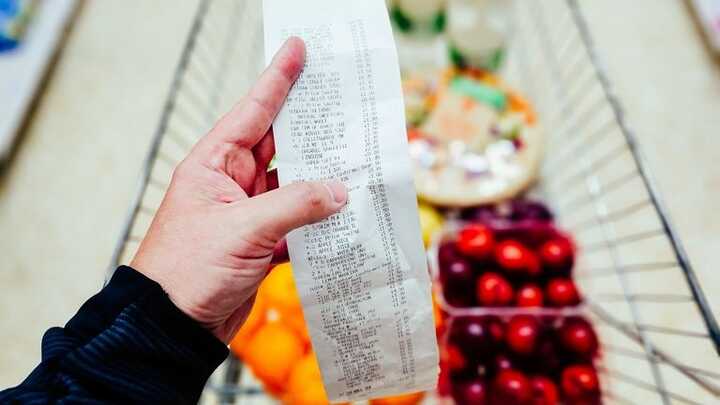Annual rate in July climbs back above Bank of England target of 2%, ONS figures show
Britain’s annual inflation rate rose to 2.2% last month – its first increase since December last year – as domestic energy bills fell by less than in July 2023.
Figures from the Office for National Statistics (ONS) showed that the government’s preferred measure of the cost of living climbed again after two months at the Bank of England’s 2% target.
The increase – although expected by the Bank and the City – was slightly smaller than the rise to 2.3% anticipated.
Prices fell by 0.2% in July – helped by cheaper hotel stays – but this was smaller than the 0.4% decrease in prices in July 2023, when energy bills dropped sharply, meaning that the headline rate of inflation increased.
The ONS’s chief economist, Grant Fitzner, said: “Inflation ticked up a little in July as although domestic energy costs fell, they fell by less than a year ago. This was partially offset by hotel costs, which fell in July after strong growth in June.”
Core inflation – which excludes food, energy, alcohol and tobacco – rose by 3.3% in the year to July, down from 3.5% in June. Inflation in the services sector, which is closely watched by the Bank’s interest rate setters, fell from 5.7% to 5.2% last month.
The fall in services sector inflation was largely because of falling hotel prices, which fell by 6.4% in July compared with an 8.2% rise the previous year.
Martin Sartorius, a principal economist at the employers lobbying group the CBI, said: “Inflation undershooting the Bank of England’s expectations will be seen as a positive sign that price pressures are continuing to normalise for households and businesses.
“Today’s data will give the Bank’s monetary policy committee some measure of confidence that domestic price pressures are less likely to derail a sustainable return to the 2% target.”
The Bank said earlier this month that it expected the consumer prices index measure of inflation would continue rising and peak at about 2.75% before falling back again.
Darren Jones, the chief secretary to the Treasury, said: “The new government is under no illusion as to the scale of the challenge we have inherited, with many families still struggling with the cost of living. That is why we are taking the tough decisions now to fix the foundations of our economy so we can rebuild Britain and make every part of the country better off.”
After the release of the ONS figures, City investors raised their bets that the Bank would cut interest rates in September.
The money markets now indicate that there is a 45% chance that the Bank Rate will be cut to 4.75% next month, from its current level of 5%, and a 55% chance that borrowing costs will remain unchanged.
Before Wednesday’s data, a September rate cut was only a 36% probability, according to City pricing.
Traders also now expect two rate cuts by the end of this year – previously, only one cut was definitely expected, with a second seen as likely.
The pound fell on the data, dropping by a third of a cent to $1.2825, down from $1.2858 just before its release.
The ONS figures coincide with the publication of a report from the Institute for Fiscal Studies thinktank showing that poorer UK households faced significantly higher food price inflation than richer households during the height of the cost of living crisis between 2021 and 2023.
The ONS said food and non-alcoholic beverage prices had risen by 1.5% in the year to July 2024, the same rate as the year to June.
The June figure was the joint lowest annual rate since October 2021, when it was 1.3%, but for the first time since March 2023 the annual rate did not come down, the ONS said.
Read more similar news:
Comments:
comments powered by Disqus

































